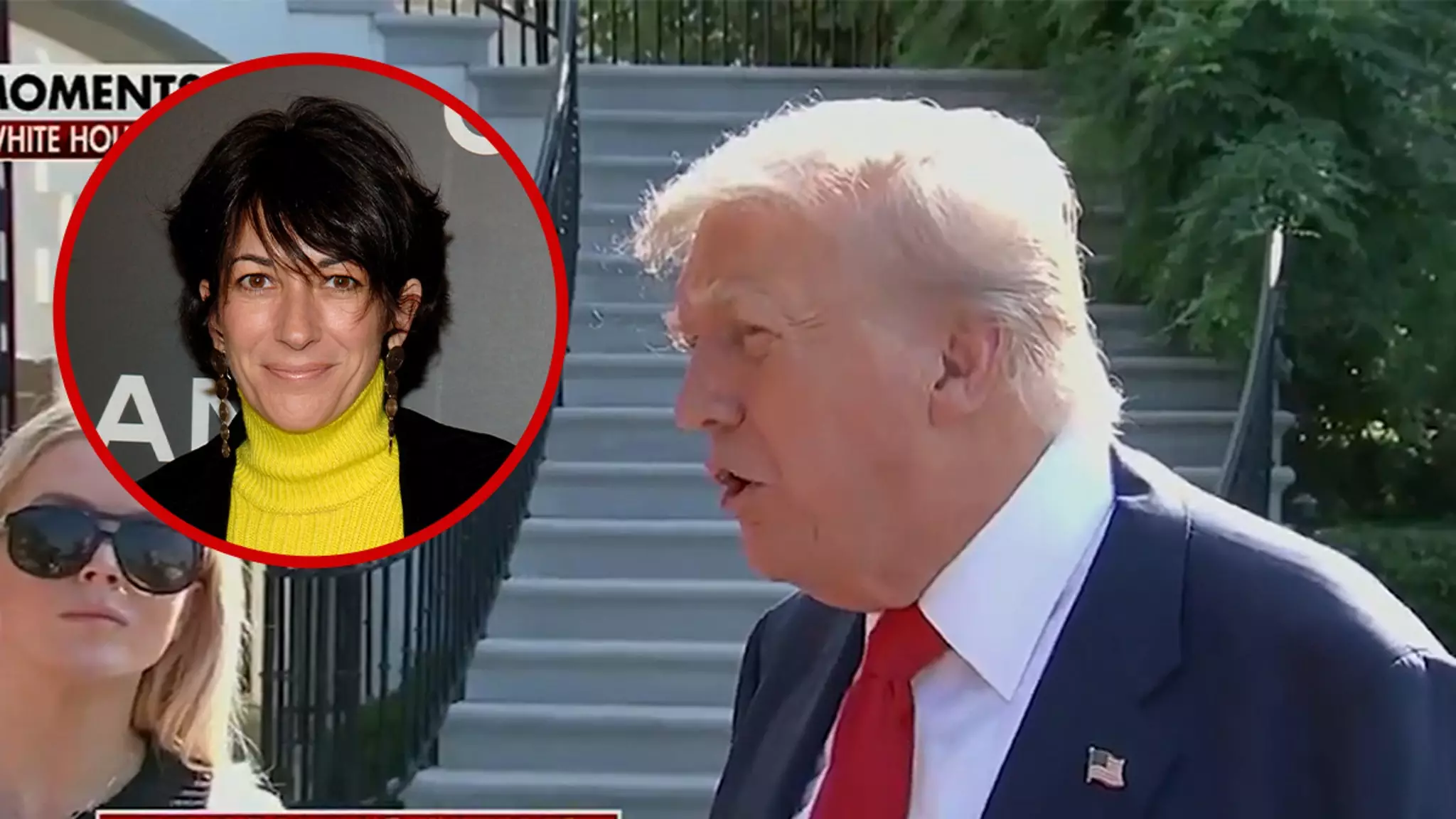In the recent whirlwind of political developments, few stories have captured public imagination quite like the potential pardon of Ghislaine Maxwell, a close associate of Jeffrey Epstein. What begins as a firm denial swiftly morphs into ambiguous openness, revealing the complex dance of political signals and personal loyalties that underpin high-stakes decisions. The initial White House assurances that “there have been no discussions” about Maxwell’s pardon now stand challenged by President Trump’s own words, which hint at a possible reconsideration. This flip-flop underscores the unpredictable nature of power, where public statements serve as temporary shields rather than definitive blocks. It also illuminates how the threads of corruption, influence, and political calculations remain intertwined beneath the surface.
This episode raises profound questions about transparency and accountability in the highest echelons of government. If a former president, or even a sitting one, begins to entertain clemency for someone entangled in such heinous crimes, what does it say about the rule of law? Is this a sign of genuine concern, or a calculated move aimed at protecting allies and maintaining influence? The ambiguity forces the public and watchdog institutions to grapple with the uncomfortable reality that justice is often subject to personal and political interests. When officials hesitate or waver in their stances, it erodes trust and fuels conspiracy theories that often dominate conversations around the Epstein scandal.
The Unusual Interventions and the Blurring Lines of Justice
One of the most startling aspects of this saga is the involvement of senior figures in what appears to be extraordinary measures. Deputy Attorney General Todd Blanche’s repeated visits to Ghislaine Maxwell in prison are highly unusual; typically, such interviews would be reserved for specialized prosecutors rather than high-ranking officials. This decision suggests internal tensions and perhaps an eagerness within the Justice Department to parse Maxwell’s knowledge and her possible links to broader networks. It’s a stark reminder that in politically charged cases, the boundaries between legal procedures and political interests often become blurred, leading to questions about the impartiality of justice.
Moreover, the drama extends beyond the courtroom. The accusations and investigations have become a political battleground fueling conspiracy theories, as well as scrutiny from Congress. Notably, Attorney General Pam Bondi’s on-again, off-again assertion about Epstein’s “client list” exemplifies how information—sometimes deliberately leaked or withheld—becomes a weapon in the broader political war. The controversy over what is truth and what is misinformation is compounded by the fact that some officials seem more concerned with protecting their reputations than unearthing the full scope of wrongdoing. This state of flux diminishes legitimacy and complicates efforts to deliver justice for victims who have long suffered in silence.
The Media’s Role in Shaping Public Perception and Political Fallout
The media, with its insatiable appetite for scandal, amplifies these already complex debates, often pushing the narrative toward sensationalism. Articles, such as the recent Wall Street Journal piece suggesting President Trump’s controversial birthday message to Epstein, serve to deepen intrigue and suspicion. The publication’s revelations feed into a broader suspicion that there is more to the Epstein story than meets the eye, and that powerful figures may have engaged in behaviors kept hidden behind layers of secrecy.
This relentless coverage contributes to a deepening mistrust among the public, especially within Trump’s base, which has historically been skeptical of mainstream narratives. The insistence on uncovering “the truth” is sometimes overshadowed by partisan agendas that exploit these revelations to rally support or undermine opponents. The dynamic underscores an uncomfortable reality: in cases involving elite power networks, transparency is often a guarded commodity, and truths are revealed selectively—if at all.
—
The Epstein-Maxwell saga exemplifies how scandals involving elite figures lay bare the fragile veneer of justice, revealing instead a complex web of political calculations, media manipulation, and institutional hesitations. It challenges the notion that the legal system operates independently when the reach of influence and power is at stake. As these stories unfold, the question remains: to what extent can the integrity of justice survive when political interests intertwine so closely with criminal investigations? The uneasy answer suggests that, in the realm of politics, truth is often the first casualty.

